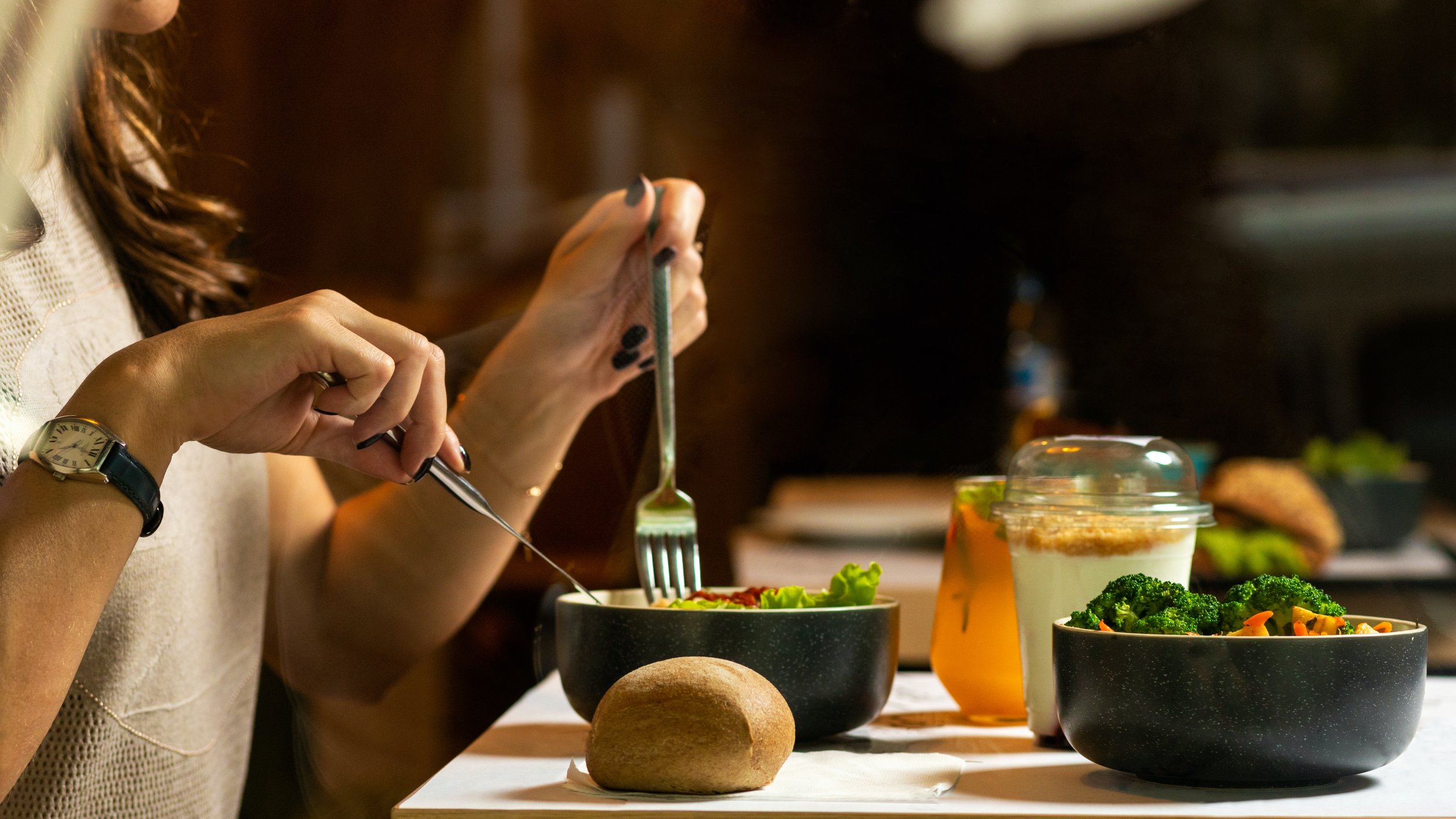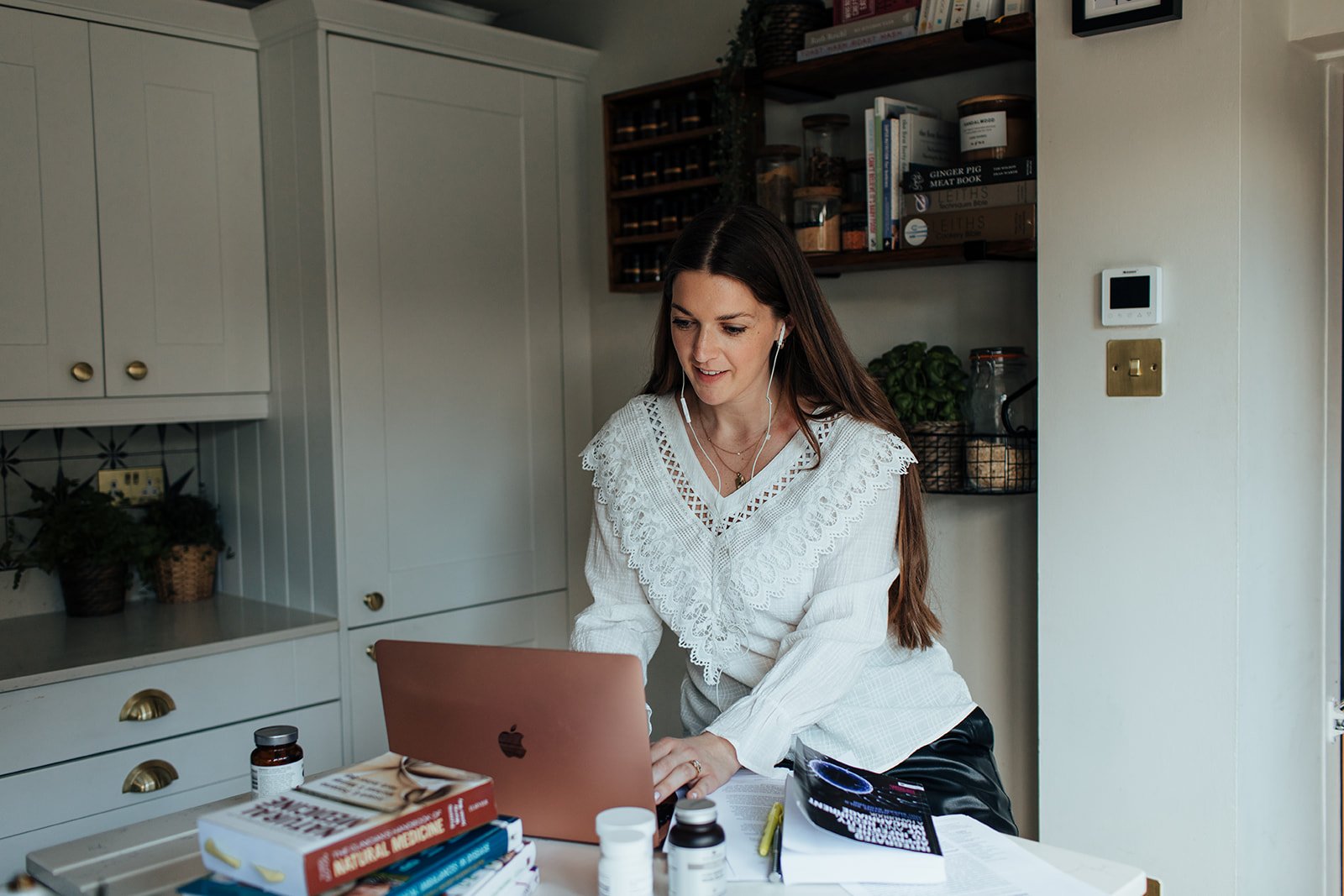Want to know the best diet for PCOS?
PCOS is more than a “hormonal condition" - for anyone who has it, you’ll understand that it’s a wholebody experience. It can leave you feeling exhausted, frustrated, and even disconnected from your own body. Whether you’re dealing with irregular periods, acne, weight gain, hair thinning, or fertility struggles, PCOS can quietly chip away at your confidence and wellbeing. And if you’ve been told to “just go on the pill” or lose weight without any deeper support, you’re not alone.
But did you know, PCOS isn’t a one-size-fits-all diagnosis? It has different root causes, different symptoms, and requires more than a generic plan to manage. So, when that Dr Google plan or latest TikTok advice hasn’t worked for you, it’s not you, it’s them.
In fact a 2020 research paper stated, “Women with PCOS may be poorly served by being grouped under a single diagnosis because PCOS subtypes may differ in responses to therapy and in long-term outcomes” (1)
That’s why personalised support is one of the most powerful tools you can use to support your body, balance your hormones, and finally feel like yourself again.
Understanding PCOS: What It Is and What It Isn’t
Polycystic Ovary Syndrome (PCOS) affects an estimated 1 in 10 women of reproductive age, yet many are misdiagnosed - or completely overlooked. Contrary to its name, PCOS isn’t just about having cysts on your ovaries. In fact, you don’t need ovarian cysts to be diagnosed.
PCOS is diagnosed when at least two out of three of the following are present:
Irregular or absent ovulation
Excess androgens (“male” hormones), which can cause symptoms like acne or excess body hair
Polycystic ovaries on ultrasound
So if you’ve been told you have polycystic ovaries on a scan, make sure you also look beyond the scan and take a whole-person approach - because PCOS is as much a metabolic and inflammatory condition as it is a hormonal one.
The Different Faces of PCOS
One reason PCOS feels so confusing is that it doesn’t look the same for everyone. You may have heard about different types of PCOS:
Insulin-resistant PCOS – The most common type, where the body struggles to manage blood sugar.
Post-pill PCOS – Often occurs after stopping hormonal birth control, leading to a temporary surge in androgens.
Inflammatory PCOS – Driven by chronic, low-grade inflammation that disrupts hormone signalling.
Adrenal PCOS – Linked to an overproduction of stress hormones like DHEA-S from the adrenal glands.
However, in my clinic I rarely see a woman that falls nearly into one category, there can be a crossover. What is more important is getting to the root cause(s) of your PCOS symptoms.
These can be:
Insulin resistance
Inflammation
Hormone imbalances
Gut health imbalances
Why Personalised Nutrition Is Key
You deserve more than a generic “cut carbs and exercise, or go on the pill” plan. Here’s why personalised nutrition works for women with PCOS:
Root cause clarity: Through functional testing (like blood sugar markers, hormone panels, gut health assessments), we uncover what’s really driving your symptoms.
Targeted support: You may need more magnesium, or strategies to calm insulin spikes, or more anti-inflammatory nutrients to soothe your gut. We tailor food and supplements to your biology.
Life-stage alignment: Trying to conceive? Post-pill recovery? Postpartum PCOS? Your plan needs to meet you where you are - not where a textbook says you should be.
Sustainable, not stressful: Real life is busy. We design strategies that nourish you without adding pressure, guilt, or food fear.
“Tailored strategies considering individual needs and personalized treatment plans are crucial for successful PCOS management.” (2).
If you’re not ready for a personalised approach, or just want some foundations to start with. Here’s some top tips.
Nutrition Foundations for PCOS (and why they work)
Balance Your Blood Sugar
Insulin resistance affects up to 70% of women with PCOS. This means your cells don’t respond properly to insulin, leading to hormone chaos and cravings.
Nutritional tips:
Pair carbs with protein and fat to slow blood sugar spikes
Choose low-glycaemic whole foods: quinoa, oats, lentils
Avoid skipping meals—it can worsen cortisol and insulin issues
Reduce Inflammation
Chronic inflammation interferes with ovulation and hormone function. The right foods can calm your system and help restore hormonal balance.
Add these to your plate:
Omega-3s from wild salmon, chia seeds, walnuts
Colourful vegetables for antioxidants (aim for 7+ portions/veg daily*)
Herbs and spices like turmeric and ginger
*it sounds daunting, but I work with my clients on quick, easy steps to get these in whilst feeling effortless & you definitely do not need to a be slave to the kitchen
Support Gut and Liver Health
Your body detoxifies excess hormones through the gut and liver. If those systems aren’t supported, hormones can become imbalanced.
Supportive foods include:
Cruciferous vegetables: broccoli, kale, cabbage
Fermented foods: sauerkraut, kefir, miso
Fibre-rich choices: flaxseeds, berries, legumes
Fill Nutrient Gaps
"Women with PCOS tend to be nutrient deficient in many common vitamins and minerals, thought to be associated with the psychological (depression, anxiety, etc.) and physiological (insulin resistance, diabetes, infertility, etc.) sequelae of the condition” (Alesi et al, 2021). These key nutrients can impact ovulation, mood, and metabolism.
Common deficiencies:
Vitamin D - vital for hormone regulation and fertility
Magnesium - supports blood sugar balance and energy
Zinc - helps reduce inflammation and skin issues
B vitamins - including B12 which is often deficient in PCOS women and associated with high dose of long term use of metformin.
Beyond the Plate: Lifestyle shifts that make a difference
Movement That Nourishes, Not Depletes
You don’t need to exhaust yourself at the gym. In fact, too much high-intensity exercise can make PCOS symptoms worse. You don’t need to punish yourself in the gym to manage PCOS - this isn’t a military bootcamp, and your hormones certainly didn’t sign up for one. I can’t tell you how many incredible women I’ve worked with who are absolutely flogging themselves on the treadmill, drenched in sweat, exhausted, and still not seeing results. They’ve been told, sometimes in no uncertain terms, that “you just need to lose weight.” So they join HIIT classes, spin until they’re dizzy, and drag themselves to the gym after long days, wondering why the scales haven’t budged (or worse, why things feel even harder).
Here’s the thing: high-intensity exercise, while amazing for some, can backfire for women with PCOS. It spikes cortisol - your stress hormone - which in turn can worsen insulin resistance and inflammation, the very things we’re trying to calm. Your body is already working hard to stay balanced. The solution isn’t to push harder. It’s to support smarter.
Think: strength training, walking, yoga - gentler, hormone-friendly ways to move that restore energy rather than drain it.
Try:
Walking after meals to support blood sugar
Gentle strength training 2–3x per week
Yoga or Pilates for nervous system regulation
Sleep and Stress Matter
Poor sleep and chronic stress raise cortisol, which can worsen insulin resistance and inflammation.
Simple daily rituals:
Magnesium baths or herbal teas before bed
Journaling or breathwork to process stress
Prioritising 7–9 hours of quality sleep
Your Next Step Toward Balance
If you’ve been struggling with PCOS symptoms and feel dismissed or overwhelmed, know this: your body is not broken. You need support rooted in clarity, not confusion, and a personalised plan that’s built around you.
Book a free discovery call to explore how personalised nutrition, functional testing, and compassionate support can help you reclaim your health - and your life.




